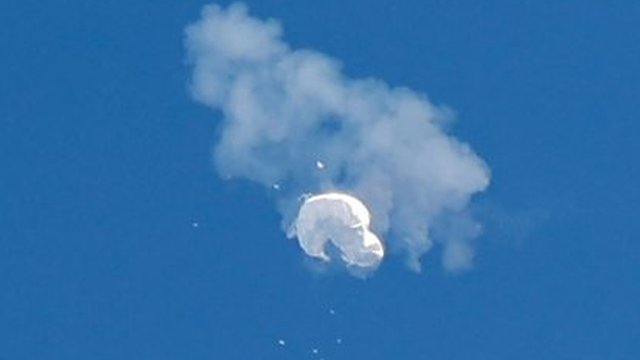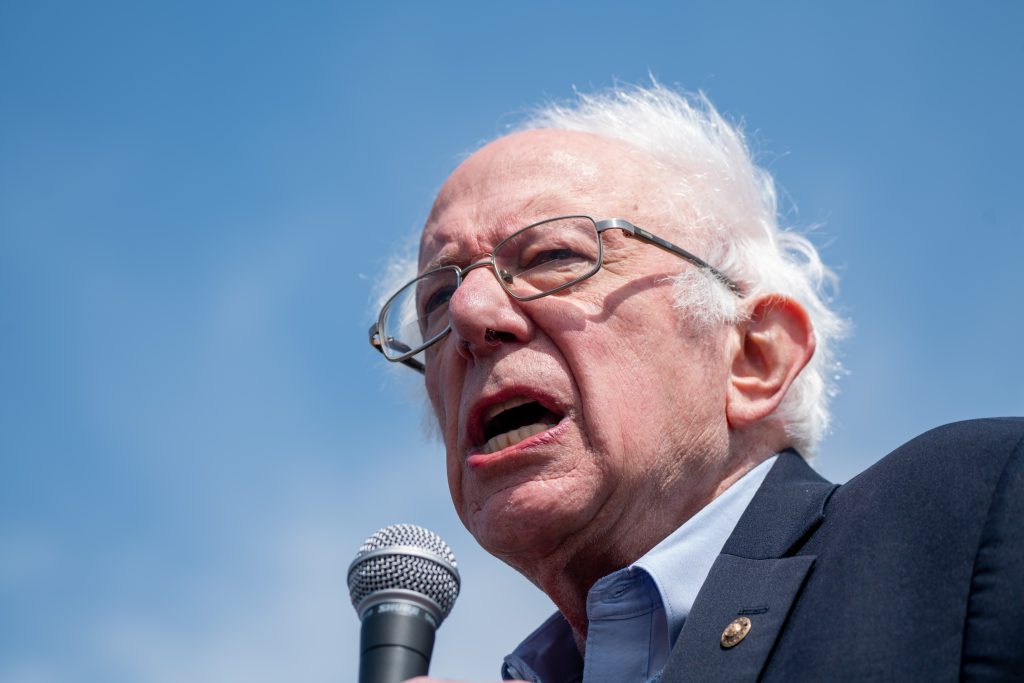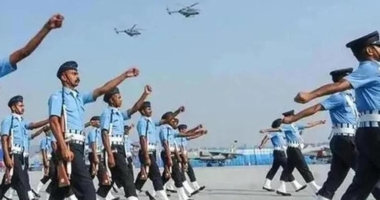Mr Biden said he would “not apologize” for the balloon being shot down
As the rift between the US and China widens over the balloon saga, so has the rift within the global community scrutinizing their high-stakes dispute.
The latest irritable exchange came on Saturday when US Secretary of State Antony Blinken met China’s top diplomat Wang Yi on the sidelines of a security conference in Munich, the first high-level meeting since the dispute began.
Mr Blinken said they would “not tolerate any violation of our sovereignty” and said “this irresponsible act must never happen again”. Mr Wang, meanwhile, called the episode a “political farce orchestrated by the US” and accused it of “using any means to block and suppress China”.
China continues to deny that they sent a spy balloon, even as the US continues to disclose more details of the object to support its claim.
But beyond the dispute, the manner in which both Beijing and Washington have responded to one another has come under scrutiny as the world grapples with the incident’s impact on national security and geopolitical stability.
The net result, observers say, is that it has hardened positions — deepened distrust among those wary of China or the US — and made it significantly more difficult for Washington and Beijing to close the gap between them.
For some, the incident has heightened concerns about the reach of Chinese espionage as governments scramble to reassess what they know about China’s surveillance capabilities. The US claims Chinese military balloons have crossed the airspace of more than 40 countries on five continents.
This week Japan – a key US ally – announced that after re-analyzing previous cases of unidentified flying objects, it had “strong suspicions” that China has flown at least three spy balloons over its territory since 2019.
A Financial Times report quoted unnamed Taiwanese officials as saying the island — another US ally and one claimed by China — was being spied on by dozens of Chinese military balloons.
Taiwan’s Defense Ministry later clarified that it had only sighted Chinese weather balloons – on Friday it found the remains of one such object – but also warned not to hesitate in shooting down suspected military objects in its airspace.
“For other states, they didn’t know what to make of this before, but now they know. So it shows a gap in understanding on the part of other countries, and it’s not surprising that China has tried to exploit the gap,” said Dr Ian Chong, a non-resident researcher at Carnegie China.
For those who are convinced by the US allegations, the incident has highlighted an underestimate of China’s surveillance capabilities – and the efforts Beijing would go to to prove it.
“It certainly shows that the People’s Liberation Army believes that it can justify absolutely any technology, any mission, that it can do anything to increase China’s ability to project power, conduct surveillance, and put the US at risk,” he said Mr. Drew Thompson, a former US Department of Defense official and Visiting Senior Research Fellow at the National University of Singapore.
This, Mr Thompson said, was “disregarding the implications for China’s reputation, commitment and compliance with international law, and without considering the benefits of acting cautiously.”
Noting a lack of a concerted outcry and resistance from the world community, Mr Thompson said this shows “a fragility of international law” and is “a testament to China’s ability to prevent other countries from criticizing it” and could do so lead a more insecure world.
According to some observers, Beijing has undermined its own attempts to win trust and project the image of a responsible superpower with the way it has responded in the saga.
China has yet to reveal details supporting its claim that the balloon was a civilian meteorological airship, such as the name of the company that operated it. “This lack of transparency has only created more questions and given those who are already skeptical a reason to be even more,” said Dr. chong.
Beijing’s subsequent claim that the US has flown more than 10 spy balloons to China in the past – which Washington denies – is also “baffling,” he added.
“Is China proposing that hovering many balloons over each other’s territory is an accepted practice?” asked dr Chong, who pointed out that if this were the case, it would contradict Beijing’s long-held insistence on respecting sovereignty.
The allegation could be seen as a case of China distracting and engaging in whataboutism, Mr Thompson said, which is one way to respond to an allegation by making a counter-allegation.
But the way the US has responded has also unsettled some, particularly those siding with China.
This week, US officials admitted that three other objects they shot down in North America were unlikely to be foreign spy vehicles. US President Joe Biden defended the decision as necessary to protect commercial air traffic and also because at the time “the risk of surveillance of sensitive facilities could not be ruled out”.
Victor Gao, vice president of the Beijing-based think tank Center for China and Globalization, called the shootings an “overreaction” that could be seen as “increasingly hysterical behavior” by the US.
“China has been very professional and responsible, explaining the situation to the United States and around the world and asking for cooperation instead of confrontation. This is in contrast to US chauvinism – they should remember that they are not shooting at buffalo in the Wild West, they are shooting down an object that belongs to China,” he said.
Others have praised the US’s handling of the incident, with Australian Deputy Prime Minister Richard Marles calling launching the Chinese balloon a “very measured way” of responding to the incursion.
Happier times: Mr. Xi and Mr. Biden greeted each other warmly at the G20 summit in Bali in November
With both sides doubling down, it’s clear that the balloon burst has made reconciliation even more difficult.
For the Chinese, the shooting down and Mr Biden’s refusal to apologize has set a precedent, Mr Gao warned.
“You would have to be prepared for similar retaliation against similar objects in China space… Don’t complain that if such an unfortunate incident happens again, China doesn’t apologize.”
He pointed out that this may even push China to take a stronger stance on US planes and ships in airspace and waters that China considers its own, such as Taiwan.
The US Navy routinely conducts “freedom of navigation” exercises by sailing its military vessels through the Taiwan Straits.
But there are signs of a willingness to get involved. Mr Biden said he plans to call Chinese President Xi Jinping soon to discuss the incident.
Both heads of state are facing domestic pressure not to be seen as backing down. As the balloon saga continues, the question now is how much political capital both leaders would be willing to spend to defuse tensions.
Don’t miss interesting posts on Famousbio










